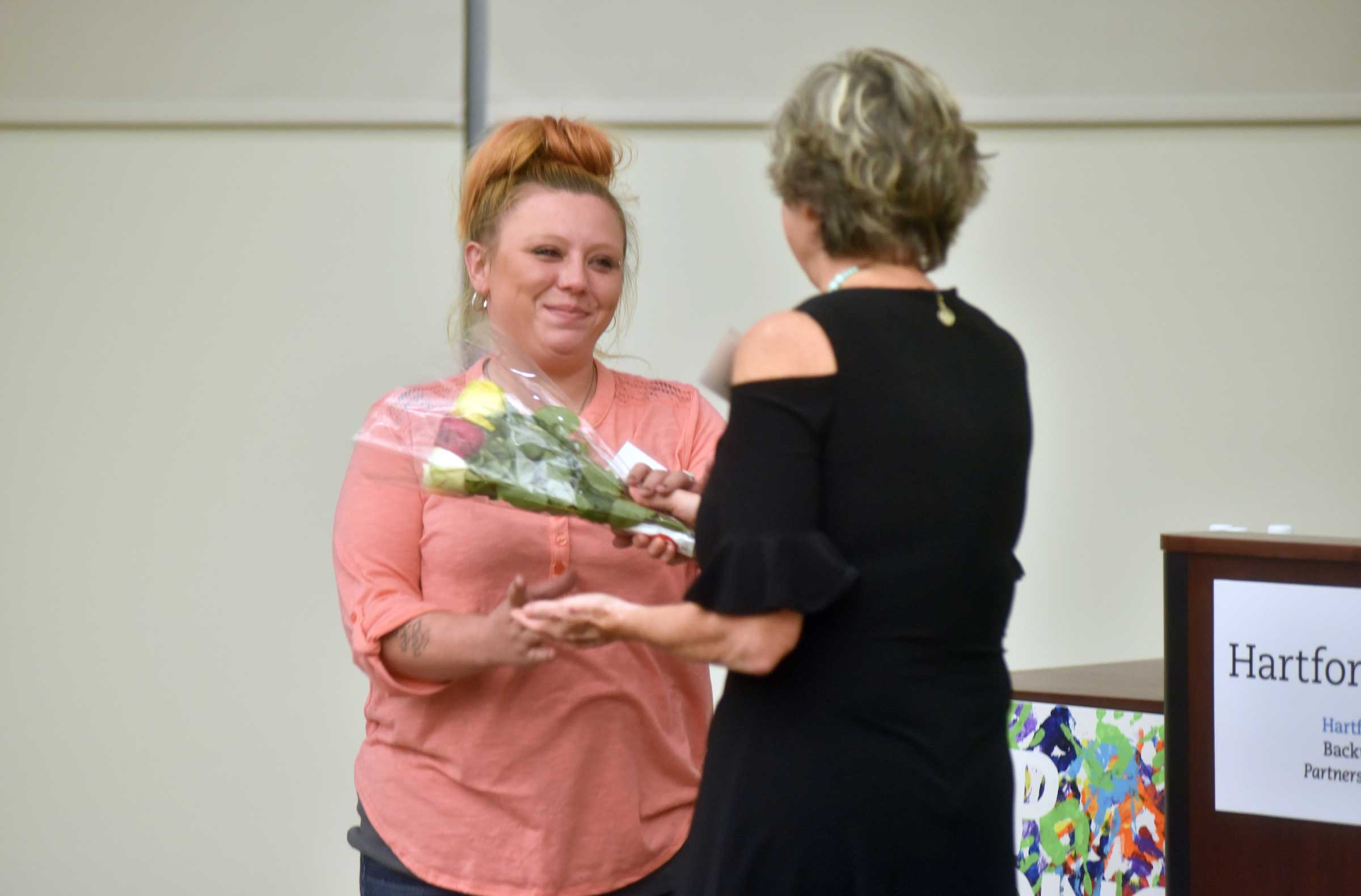At just 29 years old, Tiffany has endured more hardship and suffering than most can imagine.
She was just 15 when she and her sister were kidnapped and sold into the human trafficking system. During her captivity, she was sedated with heroin, which started a lifelong battle with addiction. She was only able to escape because of the heroic acts of her sister, who was murdered in the process.
Since then, she has battled her opioid addiction, coped with the loss of her brother to overdose, and fought to gain custody of her two children, all between stints in jail and rehab. On Oct. 26, Tiffany (first names only are used in this story for privacy reasons) stood at a podium before dozens of Natchaug Hospital staff and supporters to share her story and how Natchaug’s Care Plus program transformed her life.
 “Today, I’m grateful to tell you that I will have four years of sobriety [in January], and if it wasn’t for [Care Plus] I don’t know where I’d be,” Tiffany said. “It’s rare when you come across a program like Care Plus. It’s amazing. It’s a big family. You feel at home.”
“Today, I’m grateful to tell you that I will have four years of sobriety [in January], and if it wasn’t for [Care Plus] I don’t know where I’d be,” Tiffany said. “It’s rare when you come across a program like Care Plus. It’s amazing. It’s a big family. You feel at home.”
Tiffany was one of three clients who shared their stories at Natchaug Hospital’s annual reception at the HHC East Region System Support Office.
“Lives are being changed [at Natchaug Hospital] and I’m one of them. That’s why I stand here today in front of you,” said Betty, an oncology nurse and former client at Care Plus. “To think that at one time I was suicidal boggles me. I’ll always be grateful for Natchaug and its programs.”
The third speaker, April, is a former client at Rivereast who received public attention for her work starting an impulse control support group after graduating from treatment. April was diagnosed with kleptomania after more than 20 larceny arrests and has used the support group as an opportunity to give back.
“If I can help one person not feel alone, it’s all worth it,” April said.
Pat Rehmer, HHC Senior Vice President and Behavioral Health Network president, applauded the courage of all three speakers and highlighted the importance of a recovery-oriented system of care.
“It’s critical that people with lived experience are involved in the decisions that we make and the programs that we develop and the care we deliver,” she said. “We are really moving the system in that direction, which is very important to me and the people we serve.”
Betsy Ritter, chair of Natchaug’s development committee and the state commissioner on aging, underscored the importance of having open and honest dialogues about mental health and addiction in her opening remarks for the event.
All three speakers received standing ovations for their moving stories, as they credited the clinicians, program directors and staff who helped them along the way.
“If only you knew how you guys make us feel and how comfortable, and knowing that you guys took the time to get to know me when I didn’t want to know me,” Tiffany said. “That’s what’s beautiful.”

